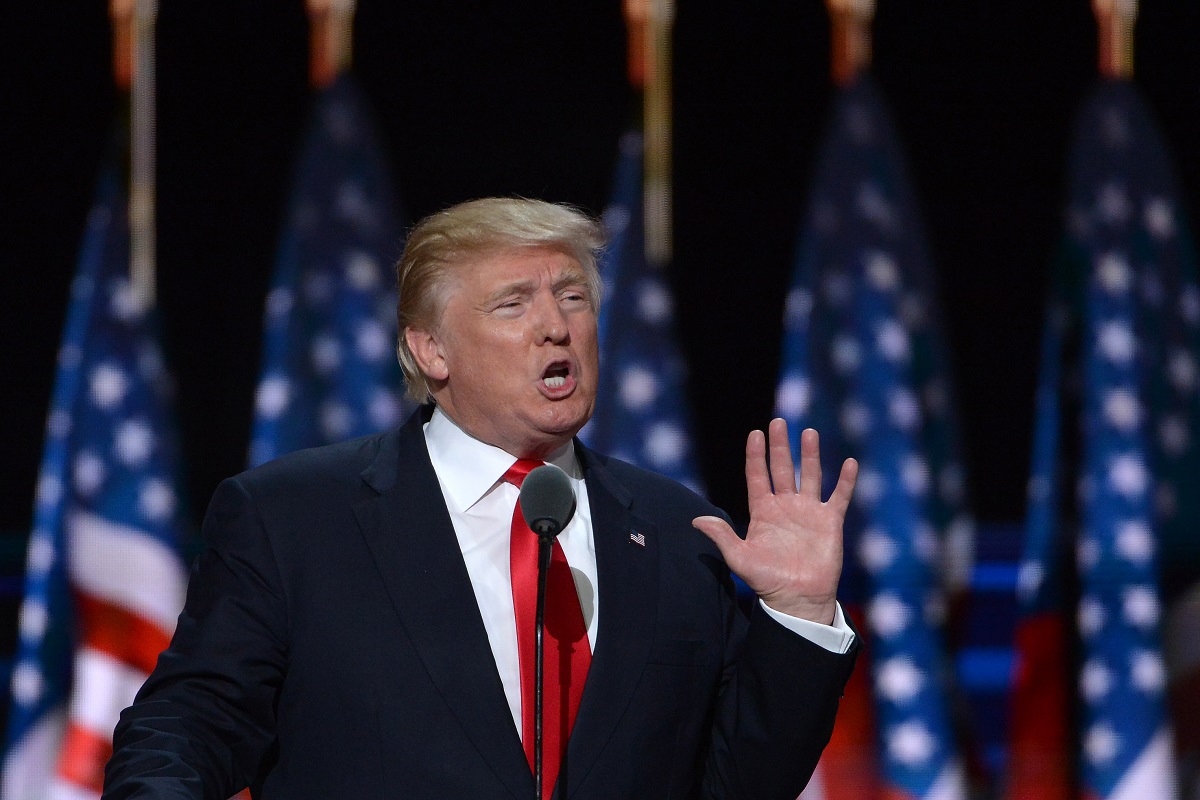City students excel at school meet on history & monuments in Delhi
Mahadevi Birla Shishu Vihar was the only ICSE school to take part in the festival from West Bengal, along with schools from other states.
The need to educate, as even Indian shastras teach, is more about self realization and helping mankind to realize its potential, by developing the intellect and knowledge to contribute to one’s natural and socio-economic environment and, regrettably, in the more recent rat-race driven world, to do well in life.

US President Donald Trump (Photo: IANS)
The sudden spurt in the strident demand that school curricula go in for increased syncing with a sense of nationalism, so bizarrely encapsulated by US President Donald Trump in the phrase “patriotic education”, is in conformity with democracies yielding space to fascistic proclivities.
The need to educate, as even Indian shastras teach, is more about self realization and helping mankind to realize its potential, by developing the intellect and knowledge to contribute to one’s natural and socio-economic environment and, regrettably, in the more recent rat-race driven world, to do well in life.
This, more often than not, means earning material wealth. Educationist Arthur Foshay’s most perceptive thoughts on distorting the purpose of education to ends that are “undesirably limited in scope” or even conflict with the loftier purpose of equipping the taught to “encompass all the dimensions of human experience”, becomes critically relevant today. This is especially so because the call for such distortion comes from some of the highest temples of democracy.
Advertisement
Mr Trump’s call for patriotic education that “celebrates the truth about our nation’s great history” seems to resonate with leading political leaders across the globe, many of whom should be far removed from education, having received it only in limited doses.
Truth to tell, there was little to mend in the overall approach to the curricula followed in Indian schools as it was designed post Independence, save to add new knowledge that was being generated over the progress of civilization. Going to school meant acquiring a thirst for knowledge and getting it from sources, essentially by reading, which meant going beyond one’s school books.
Not all were equally impacted, of course, because schools can hardly cater to customized delivery of knowledge such that each is individually served. However, suggestions that schools introduce change that encompass imparting military lessons, for instance, in a bid to make students more patriotic than they are, as a group of ministers in India suggested last year to its education policy-making body, to engender a “ecosystem of morals, ethics and patriotism”, will probably end up endangering all of these independently valuable virtues.
It is the nature of the individual’s value system that will be of the essence: whether or not morals and ethics lead one to question the resident oppression and the unfairness in society, whether or not the student’s heart beats for the dispossessed tribal, the tormented woman, the neglected aged and the many others excluded from a country that aspires to win the 21st century.
Flying the Tricolour from tall flagposts in central universities for the express purpose of evoking “nationalistic sentiments on campuses” otherwise troubled by bruised student sentiments, makes a mockery of the purportedly noble intent.
True patriotism is about supporting the right and opposing the wrong even if the latter hurts one’s vested interests or goes against the ruler’s espoused political position. It is based on the understanding that the country may not always be right, nor those in command, even if one put them there in a democracy.
Advertisement